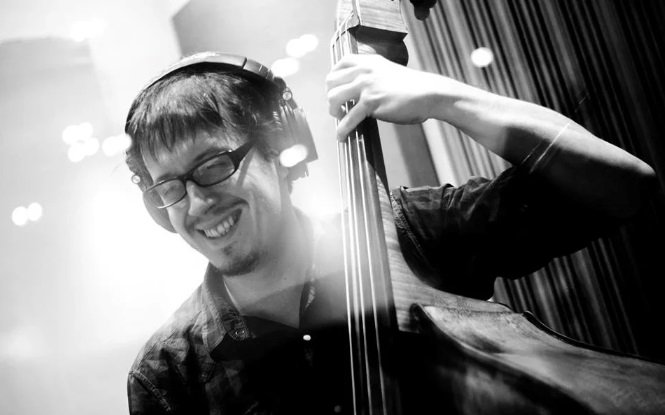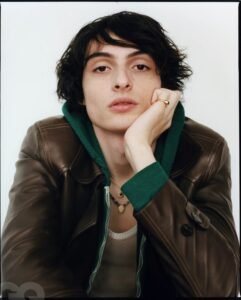Juan Bayón is a bassist and leader of Argentine jazz

Juan Bayón es contrabajista y líder del jazz argentino
Juan Bayón, born in Buenos Aires, Argentina, is a prominent double bassist and composer in the contemporary music scene, specializing in jazz and fusion. His career has been marked by a constant search for innovation within the genres he explores, leading him to become a key figure in Argentine jazz and beyond.
Education and early years
Juan Bayón studied music at the Manuel de Falla Conservatory in Buenos Aires, where he deepened his knowledge of jazz roots, as well as other musical genres that would influence his artistic development. His academic training was complemented by private lessons and music clinics, where he had the opportunity to study with internationally renowned jazz musicians.
In his early years, Bayón was part of various jazz ensembles in the Buenos Aires scene, gaining experience by performing live in iconic clubs and local festivals. His ability to navigate different jazz styles and his interest in improvisation quickly set him apart among his peers.
The Juan Bayón Cuarteto
One of the most important milestones in Juan Bayón’s career was the formation of his own group: the Juan Bayón Cuarteto. This ensemble, known for its fusion of modern jazz with elements of contemporary music, has been acclaimed by both critics and audiences. With the quartet, Bayón has released several albums, each showing a clear evolution in his style and sonic experimentation. His album Vidas simples is one of the most representative of his vision, combining sophisticated melodies with free improvisation—hallmarks of his musical identity.
The Juan Bayón Cuarteto has also performed at various international jazz festivals, including the Buenos Aires International Jazz Festival and the Barcelona Jazz Festival, sharing stages with major names in contemporary music.
Collaborations and projects
Throughout his career, Juan Bayón has collaborated with a wide range of musicians from Argentina and abroad. Among his most notable collaborations are works with Adrián Iaies, Guillermo Klein, and Ernesto Jodos—all key figures in the Latin American jazz scene.
Bayón has also worked as a session musician, participating in recordings across a variety of styles, further expanding his already broad musical range. His versatility has allowed him to contribute to projects ranging from traditional jazz to experimental and avant-garde music.
Pedagogical approach
In addition to his musical career, Juan Bayón has developed a strong presence as an educator. He has taught at prestigious institutions such as the Conservatorio Superior de Música Manuel de Falla and the Instituto Tecnológico de Música Contemporánea (ITMC). His teaching focuses on improvisation and developing a personal style, encouraging students to find their own voice within jazz and contemporary music.
Bayón has also conducted numerous clinics and workshops both in Argentina and abroad, where he shares his knowledge and experience with young musicians and jazz enthusiasts. His teaching is known for conveying not only instrumental technique but also his philosophy on music and the art of performance.
Controversies and artistic debate
As with many artists who challenge the conventions of their genre, Juan Bayón’s career has not been free of controversy. One recurring topic in discussions about his music is his tendency toward experimentation and genre fusion, which has sparked debate within more purist jazz circles.
Some critics argue that his style strays too far from traditional jazz, while others praise his ability to innovate and push the genre in new directions. Bayón has responded to these critiques by stating that evolution is an inherent part of any art form, and that his goal is always to offer something fresh and personal without losing respect for jazz’s roots.
Legacy and future
Juan Bayón remains a central figure in contemporary Argentine music. His influence extends beyond jazz, inspiring many young musicians who see him as both an artistic and personal role model. With a career still on the rise, Bayón shows no signs of slowing down, and he is expected to continue exploring new musical frontiers in both composition and performance in the years to come.







